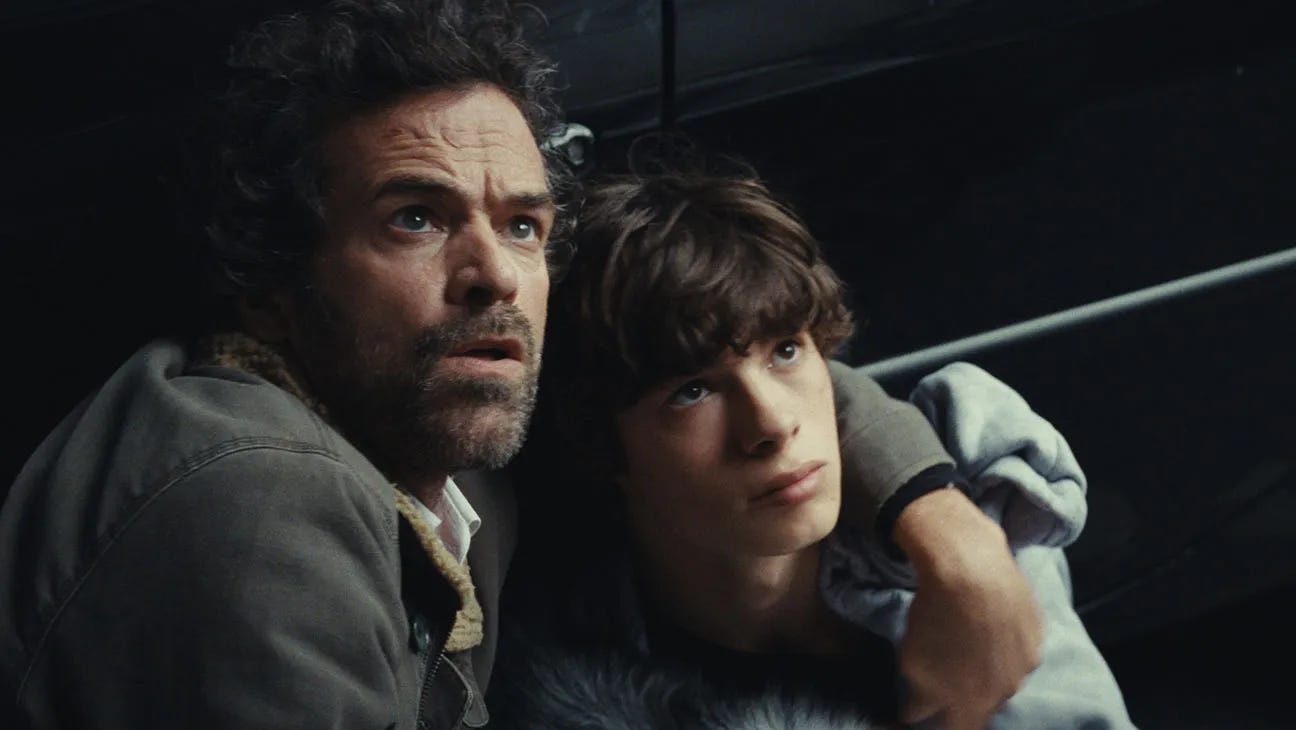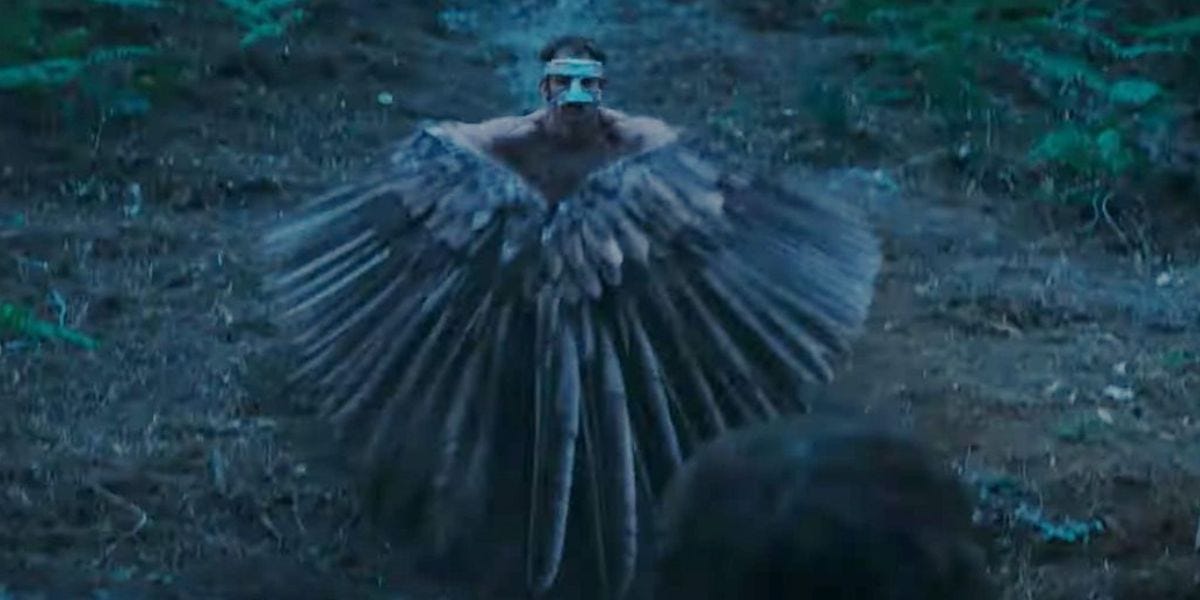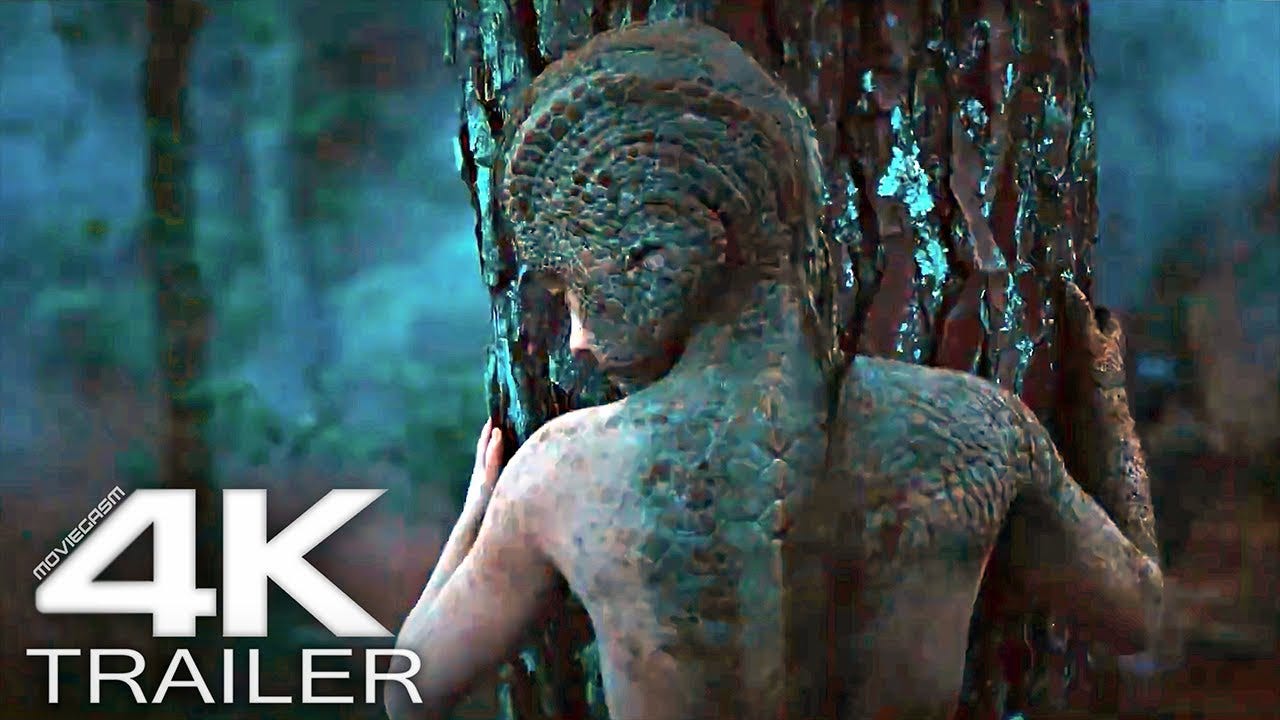The Animal Kingdom: Marlin Perkins this is not.
See The Animal Kingdom for its remarkably close-to-home depiction of a future up-ended by arrogant science, not for its sick plug for twisted bestial diversity.
I am not keen on supernatural, fantasy, or whatever loud, broad, infantile, brain-cell-depleting Marvel mumbo-jumbo they are cooking up at major studios these days. By contrast, the French-Belgian dystopian parable Le Règne Animal (The Animal Kingdom), winner of the New Voices New Visions Award at The Palm Springs International Film Festival (PSIFF), is fresh, terrifying, and visually arresting. The premise is odd, but it works.
In this coming-of-creature story, an energetically concerned chef, François (Romain Duris), furiously tries to protect his 16-year-old son Emile (Paul Kircher) from the desultory fate of his similarly stricken wife Lana, a half-wolf/half-human forced to live in a recovery center to undo her “mutations.“ After the crash of an emergency vehicle transporting Lana to a more secure facility—François and Emile have moved nearby to be close to her—she slips into the nearby Landes de Gascogne Regional Natural Park to elude those who seek to kill or contain her. Despite heroic efforts to pass as normal with his new classmates—including an hilariously impulsive girl with ADD drawn to his oddness—the forest is also where Emile eventually finds himself, the call of the wild too much for his rapidly transmogrifying body to resist.
Without overreliance on special effects, director Thomas Cailley achieves an uncanny verisimilitude to how hybrid creatures might look and behave. Actor Tom Mercier is especially impressive in conjuring the vocal sounds of the eerily freakish birdman Fix. And Kircher is completely believable when he watches with terror and then acceptance as animal claws start to slowly, eerily emerge out of his human digits.
The French feel-good thematic of viva la difference, however, is naive and off-putting. Cailley asks us to view his tragic freaks as stand-ins for today’s deliberately grotesque morphological basket cases. There is a huge moral difference between the two. The former is a real-world threat, as we saw in COVID with the humanity-threatening gain-of-function research at the controversial Wuhan Institute of Virulogy, which has still not been properly sanctioned. The latter is a sign of deep mental disturbance. In no sane world is a person’s perverse desire to deploy modern medicine to transform into another species, let alone an elf––a phenomenon I recently witnessed on LA’s Larchmont Boulevard––“normal.” Sorry, Wokesters, being ineluctably gay, lesbian, or bisexual by “orientation” is a far cry from today’s extreme freak-show body modification cult. Some chosen “diversities” should never be tolerated, let alone normalized.
The film’s rousing message that we need to love the disturbing half-human creatures already in our midst under the guise of “liberation” is misguided. See The Animal Kingdom for its remarkably close-to-home depiction of a future up-ended by arrogant science, not for its sick plug for deliberate permutations of our essential nature.
The Animal Kingdon gets a 6 on the 0-10 Saltburn/Poor Things Disgust-O-Meter (10 being a total gross-out).






